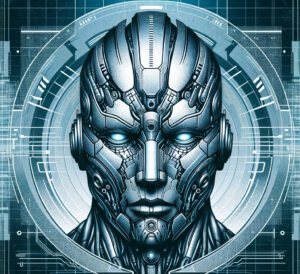Anthropic has released Claude 3, a groundbreaking AI language model boasting “near-human” capabilities across various cognitive tasks. Available now through Anthropic’s website and API for developers, Claude 3 comes in three versions: Haiku, Sonnet, and Opus, with Opus being the most advanced and offered as part of a subscription service. This latest iteration claims to surpass OpenAI’s GPT-4 in performance on several AI benchmarks, sparking discussions about the potential and limitations of current AI technologies.
Anthropic’s Claude 3: Setting a New Benchmark in AI Language Models
Anthropic’s unveiling of Claude 3 marks a significant moment in the ongoing development of AI language models. This family of models, comprising Claude 3 Haiku, Sonnet, and Opus, demonstrates advancements in AI’s ability to process and understand complex information. While Claude 3 Sonnet is available for free with email sign-in, the more sophisticated Opus model requires a subscription. Anthropic suggests that Claude 3 has caught up with, or even surpassed, OpenAI’s models in performance, albeit amidst ongoing debates within the AI research community.
What’s New With Claude 3
Claude 3’s improvements are notable across reasoning, expert knowledge, mathematics, and language fluency, positioning it as a potentially transformative tool for developers and businesses. Despite the lack of a consensus on whether AI can truly “know” or “reason,” the enhancements in Claude 3’s design and capabilities highlight significant progress in mimicking human-like comprehension and fluency.
The claim that Claude 3 Opus reaches “near-human levels” in certain benchmarks is both bold and subject to qualifications. It underscores the rapid advancements in AI technology, while also reminding us of the nuances in comparing AI to human intelligence. According to Anthropic, Claude 3 Opus outperforms OpenAI’s GPT-4 on several benchmarks, indicating a leap forward in AI language model development.
Why It Matters
The development of Claude 3 and its purported “near-human” abilities represents an exciting, yet complex, frontier in AI technology. As these models continue to evolve, they offer the promise of more intuitive and versatile tools for a wide range of applications. However, the conversation around Claude 3 also brings to light the challenges in objectively assessing AI performance and the implications of these technologies in replicating human cognitive processes.
Potential Implications
- Benchmarking AI Performance: The reported success of Claude 3 on various benchmarks may prompt a reevaluation of how AI models are assessed, focusing not just on technical achievements but also on qualitative user experiences.
- AI in Everyday Life: With advancements like those seen in Claude 3, AI language models could become even more integral to personal and professional tasks, raising questions about dependency on AI and the future of human-AI interaction.
- Ethical and Philosophical Considerations: As AI models approach “near-human” capabilities, ethical considerations regarding their development, deployment, and potential societal impact become increasingly important.
Source: Ars Technica


